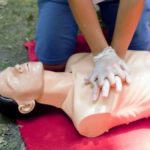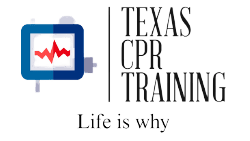
Who is at Risk for Sudden Cardiac Arrest?
As the name suggests, Sudden Cardiac Arrest (SCA) occurs suddenly and abruptly, generally with no evident indication. SCA can happen to anybody at anytime, probably when it is when it is least expected. There are no obvious manifestations that can make a person aware that he or she is soon going to become the victim of a deadly situation.
However, there are certain people who are relatively more vulnerable to cardiac arrests and can be categorized into the types of people with greater risk for SCA.
Mentioned below are the few potential risks associated with SCA explained with brief details:
Demographic factors and the Risk of SCA:
#1: Age
The incidence of Sudden Cardiac Arrest (SCA) increases with age. People older than the age of 40 are prone to SCAs compared to young adults.
#2: Gender
According to various scientific studies, males are more susceptible to sudden cardiac arrests than females. In a 2016 study, it was revealed that the incidence rate of SCA in young men is twice as compared to women.
#3: Race
Compared to Caucasians, African-Americans have twice the rate to Sudden Cardiac Arrests (SCAs), according to a 2015 study. The research is confirmed by the American Heart Association (AHA) in the article discussing why blacks are more likely to experience sudden cardiac arrest at much younger age, than whites.
Major Risk Factors of SCA:
#1: Coronary Heart Disease (CHD)
This is one of the foremost reasons behind cardiac arrests. In CHD, arteries become clogged with waxy substance, usually cholesterol which causes constrictions in the arteries making it hard for the oxygenated blood to reach heart for sufficient pumping. This prevents heart from functioning well and conducting electrical impulses smoothly causing SCA.
#2: Heart Attack
Myocardial infarction or heart attacks can interfere with normal heartbeat rhythm causing ventricular fibrillation and arrhythmia. Various individuals who have the history of heart attack are more susceptible to SCA. However, many individuals do not manifest any clear signs of heart attack and go through undiagnosed or silent heart attacks prior to SCA.
#3: Low Ejection Fraction
Ejection Fraction is the amount of blood pumped by the ventricles with each heart beat. A healthy heart pumps around 55% of blood or more with each heartbeat. If someone is suffering from lower ejection rate, such as less than 35%, they are at greater risk of SCA.
#4: Cardiomyopathy
Cardiomyopathy is a condition in which normal heart undergoes structural changes and enlarges. This enlargement is a result of abnormal cardiac muscles that have thickened or stretched. This abnormality leads to improper generation of electrical impulses damaging the electoral signaling system of the heart. This in turn leads to arrhythmia, the main cause of SCA.
Other Biological Risk Factors:
Other risk factors that have potential to cause SCA comprises of similar factors that contribute to coronary heart diseases. The list includes:
- Hypertension
- Genetics – family history of CHD or SCA
- High Blood cholesterol
- Obesity
- Diabetes
- Stress and anxiety
- Unhealthy diet
- Lack of physical activity
Mayo Clinic, Sudden Cardiac Arrest
National Heart, Lung, and Blood Institute
Sudden Cardiac Arrest Foundation
American Heart
5 things that increase your risk for sudden cardiac arrest
Risk Factors
Brought to you by Texas CPR Training
